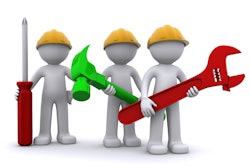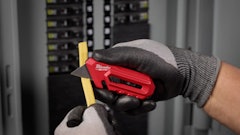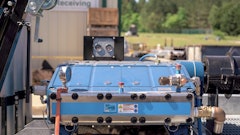
Part 1 in a series by Sue Dyer of OrgMetrics...
Have you ever worked on a project or in a job where it seemed that everyone involved was working against each other? It’s no surprise when such a project or initiative fails. Sometimes you just wish there were a way to get everyone on the same page.
In every equipment rental business, communication and cooperation are key to getting the right equipment to the customer on time and in one piece. The bigger the operation, the more complicated it becomes. That’s why it’s so important to get everyone in your company working together efficiently. But it’s not always easy.
7 Root Causes to Poor Communication at Your Business
5 Tips to Rise to the Highest Level of Cooperation in Business
How to Become a Trusted Leader | ForConstructionPros.com
Four Steps to Solving Your Problem
Here are some concepts that help create a foundation that allows for partnership and teamwork to grow.
Take ownership of problems - What happens when a problem occurs? Is your first reaction, “I thought Bob was supposed to do this” or “I paid a lot of money to get this right” or “These numbers are just wrong”? If so, the next logical step is to figure out who is to blame for your having this problem. Most of us are very skilled at analyzing who is to blame. Meanwhile, what is happening to the problem that you’ve uncovered… who is trying to resolve it? No one! When blame seeking starts, all communication between team members stops. And if it takes the team two days, two weeks, or two months to begin to talk about the “real” problem, that time can never be recaptured. It is lost forever. This is a huge risk to the success of your project.
It doesn’t matter who created the problem. What does matter is that you understand and resolve the problem quickly so the project (or team) is not damaged. Ownership of problems means that everyone owns the problems. You seek solution, not blame.
Commit to full disclosure - This means that you tell everyone everything that you know. How can the team possibly create plans or know where the inherent problems are if it doesn’t have the best information?
Many times team members hold their cards close to their vests, not revealing everything that they know. They think that this somehow gives them an advantage. But in fact, when you are working on a project (or on a team) you are interdependent - you need each other in order to succeed. By holding your cards close, causing the other team members to not make the best decisions or plans, you are really hurting yourself as well as the potential success of your project or initiative.
Honestly discussing all problems up front can help you assure success. We know from research that problems occurring after you are underway have a greater impact than problems identified and worked out during the planning phase. So at the very start of your project or initiative take time for the team members to share what each sees as potential problems. Then you will have time to mitigate the impacts. Full Disclosure means you tell everyone everything that you know – the good, the bad and the ugly.
Empower others - Team members often get frustrated when they aren’t allowed to make the decisions they feel are critical for a successful project. Even worse is when a decision they’ve made is overturned by someone higher up in the organization. Pushing the power and decision making down to the project/team level is critical for the success of the project or initiative. When issues leave the project level they tend to grow exponentially in both cost and time.
You will generally get better quality decisions from those closest to the issues. Empowering your team members is your best bet for success. In many organizations power resides away from the project and the team members don’t feel that they can make decisions.
Before you start a project/initiative, it’s important to figure out ways to empower the team to do whatever they feel is required in order to succeed. Many teams are doomed before they start. Empower Others means you push the decision making down to the project level before you start.
Partnering requires commitment - Partnership doesn’t just happen by itself, it takes commitment to build and grow. There will be many things along the way working to split up you and your partners. You have to keep together despite them. There will be times when it would be easier to just walk away instead of sitting down face-to-face to work things out. Sometimes the best commitment you can make is to tell each other the truth and then deal with it constructively.
If there are legal agreements between you as partners, don’t let them solely define your working relationship. The judicial process is adversarial by design. This can undermine the ability to build the partnering relationships required to succeed. You can’t be both “partners” and “adversaries,” they are mutually exclusive. Commitment means doing whatever is necessary to keep your partnership alive and well.
Build trust - Trust is the keystone of partnership. Your partnership will be as good as your ability to create and grow trust between your team members. It allows for open, honest communication. You have more power to create trust than you might think. Your first interaction sets the tone for the relationship. If you go into the relationship trusting and seeking to cooperate and work together, then you are highly likely to get that attitude in return. If you go into the relationship trying to protect your interests and unwilling to be open, that is probably what you will get in return. Game theory shows that cooperative relationships produce larger wins than those where participants are protective and self-serving.
What I’ve learned about trust is that, for a team, “fairness” is the underpinning of creating trust. It is when someone feels that something is “unfair” that trust begins to erode. So when you have a problem or issue, always put “fairness” on the table and discuss it first. What is a fair way to resolve the issue? Most teams can figure it out. Measure the level of trust on your project and you will have a good idea of how successful your project will be.
By using these five concepts you can build the attitude and atmosphere that allows partnership to grow. For most projects/initiatives, working together, not against each other, is the only way they can hope to succeed.





















